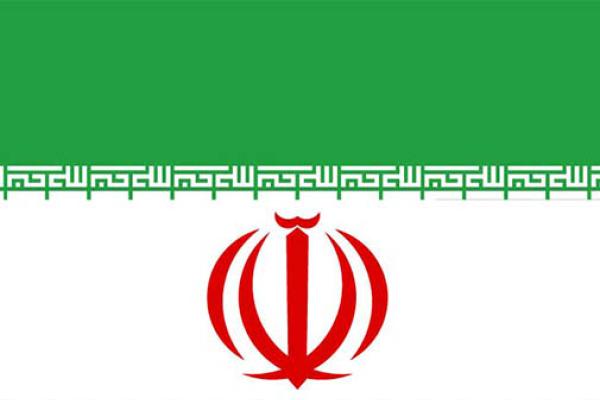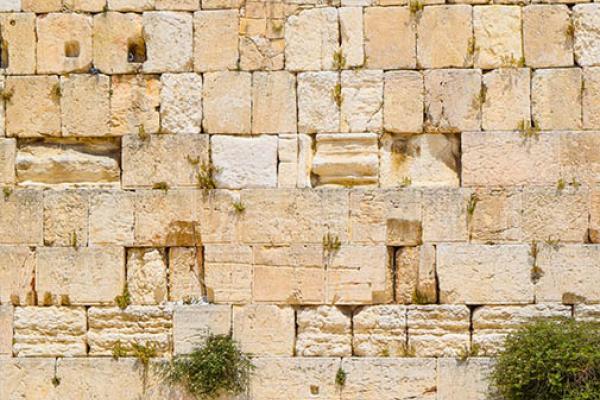By Jonathan Bernis As believers in Yeshua (Jesus), we know that He fulfilled dozens of Messianic prophecies of the Tanakh that are central to Judaism and Messianic expectation. We also know that many firstcentury Jews recognized this and became early followers of Yeshua as the Jewish Messiah, while retaining their Jewish identity and continuing to observe practices such as worshiping on Shabbat. How then, did Yeshua come to be thought of as a blondhaired, blue-eyed Aryan figure—a man Jewish People do not recognize because He looks so much like a Gentile?
Sent to the Gentiles
To understand how this change took place, we first need to see that it was always God’s plan for the Messiah to bring the Gentiles into His Kingdom. Many verses throughout the Tanakh prove that this is true. In Genesis 12:3, for example, God says to Abraham, “I will bless those who bless you, and whoever curses you I will curse; and all peoples on earth will be blessed through you.” This promise to bless the entire world through Abraham’s descendants has two meanings. First, the Jewish people have fulfilled this promise by blessing the world through the advancements they have brought to medicine, science, literature, and culture. In fact, although Jews make up only .0025 percent of the world’s population, they have won 23 percent of the Nobel Prizes since the award was established in 1901. Second and more importantly, God’s promise to Abraham refers to the fact that the Messiah, the Savior of all humankind, would come into the world through God’s Chosen people. Scriptures referring to this include:
“Abraham will surely become a great and powerful nation, and all nations on earth will be blessed through him.”—Genesis 18:18 “I, the LORD, have called you in righteousness; I will take hold of your hand. I will keep you and will make you to be a covenant for the people and a light for the Gentiles, to open eyes that are blind, to free captives from prison and to release from the dungeon those who sit in darkness.” —Isaiah 42:6-7“It is too small a thing for you to be my servant to restore the tribes of Jacob and bring back those of Israel I have kept. I will also make you a light for the Gentiles, that you may bring My salvation to the ends of the earth.” —Isaiah 49:6
The Magi Were Gentiles
Zoroastrianism was an obscure religion founded by Zoroaster, who is better known as Zarathustra. Zarathustra lived in Persia perhaps a thousand years before the birth of Yeshua. He believed in one God, the Creator, and taught his followers to live good, moral lives. He also told them to keep watch because God was going to send a deliverer who would bring salvation. And watch they did, for years and years until one night, they saw a new star in the sky. Zarathustra’s priests were called magi. The New Testament tells us that three “wise men” from the East came to Bethlehem to honor Yeshua shortly after His birth, bringing Him gifts of gold, frankincense and myrrh. Matthew calls them magi and says that they stopped in Jerusalem and asked, “Where is the One who has been born King of the Jews? We saw His star in the east and have come to worship Him” (Matthew 2:1-2). It is likely that the wise men who followed the star to the stable where Jesus was born were followers of Zarathustra, and thus, obviously Gentiles.
Gentiles in the Kingdom
Even though the Gentile Magi came to honor Yeshua’s birth, His ministry while on earth was directed solely to the People of Israel. And for the first thirty years of what later came to be known as Christianity, the community of faith was limited to Jews and proselytes to Judaism. In addition, the Jews who followed Jesus had no idea that this New Covenant faith would include Gentiles. Yes, it was prophesied. Yes, it was part of God’s plan. But it was still not clear to the early believers. Acts 9 and 10 tell us how God began to carry out His plan to reach the Gentiles with the message of salvation through His Messiah. First, a flash of light so bright that it knocked a man to the ground and left him blind for three days. That man was a zealot named Saul who was on his way to Damascus to arrest Jews who dared to profess belief in Yeshua. Saul arose from the ground a changed man, and from that day forward he was called Paul. He quit persecuting believers and began proclaiming boldly that Yeshua was the Messiah. God revealed His plans for Paul in Acts 9:15: “This man is My chosen instrument to carry My name before the Gentiles and their kings and before the people of Israel.” Known as “the apostle to the Gentiles,” Paul went on to preach about Jesus throughout the known world and wrote thirteen of the New Testament’s 27 books. About this time the apostle Peter was praying on the roof of a house when he had a vision of something like a sheet full of animals being let down from heaven. Among them were reptiles and other creatures that no law-abiding Jewish person would eat. As he saw this vision, Peter heard a voice tell him to eat this food and not to call anything impure that God has made clean. The vision repeated itself three times. While Peter was wondering what it meant, the Spirit told him to go downstairs to greet men who were looking for him. God said, “Do not hesitate to go with them, for I have sent them” (Acts 10:20). Peter obeyed, and the three men explained that they had been sent by their master, a Roman centurion named Cornelius. “He is a righteous and God-fearing man, who is respected by all the Jewish people,” they said. “A holy angel told him to have you come to his house so that he could hear what you have to say” (Acts 10:22). Peter went with the men and heard Cornelius’ story for himself. When he did, he said, “I now realize how true it is that God does not show favoritism but accepts men from every nation who fear Him and do what is right” (Acts 10:34-35). The Bible says that while Peter was telling them the Good News of forgiveness of sins through faith in Jesus, “the Holy Spirit came on all who heard the message. The circumcised believers who had come with Peter were astonished that the gift of the Holy Spirit had been poured out even on the Gentiles” (verses 44-45). And that is how Cornelius and the members of his family became the first Gentile followers of Yeshua.
Controversy Begins
Back in Jerusalem, the news of this event caused no small controversy. Acts 11:2-3 says, “So when Peter went up to Jerusalem, the circumcised believers criticized him and said, ‘You went into the house of uncircumcised men and ate with them.’ ” But after Peter told them what had happened, “they had no further objections and praised God, saying, ‘So then, God has granted even the Gentiles repentance unto life’ ” (Acts 11:18). Sadly, this was not the end of the controversy between Jewish and Gentile believers. Acts 15:1-2 says some men were teaching that unless a man was circumcised he could not be saved, a teaching that Paul and Barnabas sharply disputed. The Jewish followers of Jesus simply did not know what to do with the Gentiles. Their confusion shows that they did not think of themselves as members of a new religion; they considered themselves to be faithful, obedient Jews who accepted Yeshua as their Messiah and believed that they had forgiveness of their sins through faith in Him.Acts 15 tells of a council that took place in Jerusalem to determine what should be done with the Gentile converts. Some argued that they must be circumcised and obey all the laws of Moses. Others, including Peter, thought differently.
After much discussion, Peter got up and addressed them: “Brothers, you know that some time ago God made a choice among you that the Gentiles might hear from my lips the message of the Gospel and believe. God, who knows the heart, showed that He accepted them by giving the Holy Spirit to them, just as He did to us. He made no distinction between us and them, for He purified their hearts by faith. Now then, why do you try to test God by putting on the necks of the disciples a yoke that neither we nor our fathers have been able to bear? No! We believe it is through the grace of our Lord Jesus that we are saved, just as they are.” —Acts 15: 7-11
Ultimately, the council decided to send a letter to the Gentile believers, saying in part:
It seemed good to the Holy Spirit and to us not to burden you with anything beyond the following requirements: You are to abstain from food sacrificed to idols, from blood, from the meat of strangled animals and from sexual immorality. You will do well to avoid these things. —Acts 15:28-29
Unfortunately, this was not the end of the tension between Jewish and Gentile Believers, or between believing and unbelieving Jews. In Galatians 2, Paul writes about a confrontation he had with Peter because Peter had begun to draw back and separate himself from the Gentiles because he was afraid of “those who belonged to the circumcision group” (verse 12). Other Jewish People were joining Peter in this hypocrisy. Paul said to Peter:
“We who are Jews by birth and not ‘Gentile sinners’ know that a man is not justified by observing the law, but by faith in Jesus Christ. So we, too, have put our faith in Christ Jesus that we may be justified by faith in Christ and not by observing the law, because by observing the law no one will be justified.” —Galatians 2:15-16
This conflict continued for the first few hundred years after Yeshua, as a number of sects of Jewish believers flourished and then faded. Among these were the Ebionites, who rejected Yeshua’s divinity, but accepted Him as a prophet and teacher, believing that He encouraged His followers to faithful observance of the Law of Moses. They also rejected the doctrines of the virgin birth and the resurrection, and considered Paul to be a heretic. Then there were the Nazarenes. These Jewish survivors of the destruction of Jerusalem were active in Syria to the end of the fourth century. Author Philip Schaff, in his book, The History of the Christian Church, Volume 2, says:
They united the observance of the Mosaic ritual law with their belief in the Messiahship and divinity of Jesus, used the gospel of Matthew in Hebrew . . . But they indulged no antipathy to the apostle Paul. They were, therefore, not heretics, but stunted separatist Christians . . . ishing to be Jews and Christians alike, they were neither one nor the other.
Many other groups in Judaism acknowledged in some way the superiority of Yeshua’s life and teachings, although most of these have long since disappeared. But never has there been a time of no Jewish believers. In Romans 11:5, Paul writes about the “remnant chosen by grace.” This “remnant” is larger today than ever before, and it is growing rapidly.
Division Deepens
By the end of the first century after Yeshua’s birth, the relationship between Jewish people who accepted Him as Messiah and those who rejected Him continued to worsen. One of the chief problems for the latter was that Yeshua’s followers welcomed Gentiles into their ranks and treated them as equals. This was not something a pious Jew of the first or second century could easily tolerate. By 125 A.D., the liturgy recited in the synagogue each Shabbat was amended to contain the following prayer: “For the renegades let there be no hope, and may the arrogant kingdom soon be rooted out in our days, and the Nazarenes and the minim perish as in a moment and be blotted out from the book of life and with the righteous may they not be inscribed.” In his book Y’shua, Moishe Rosen suggests that minim is most likely a corruption of “ma’aminum,” which means “believers” and refers to Jewish followers of Yeshua. Rosen writes, “A Jewish Christian could hardly be expected to recite a prayer against himself.” He adds that the new prayer was therefore “an effective tool to dissociate Jewish believers from the synagogue. It was not that they decided to leave—they were forced out by the leadership.” Rosen explains further that the final break in the relationship between Jewish people who accepted Yeshua and those who rejected Him occurred during the revolt against the Emperor Hadrian, early in the second century. The uprising was prompted by the emperor’s edict banning circumcision. At first believing Jews joined in the battle, fighting side by side with their nonbelieving countrymen. But that changed when Rabbi Akiba declared that the Messiah had come in the person of Simon Bar Kochba, the leader of the Jewish forces. Rosen says, “At that point, the Jewish Christians could no longer support the war carried on under the auspices of ‘Messiah’ Bar Kochba. So they once again pulled out. This time it led to the decisive break.” It also led to an almost complete annihilation of the Jewish people. The nation of Israel was effectively destroyed. Jerusalem was declared off-limits to Jews. Any who dared to enter their holy city were at risk of being put to death by the Roman authorities. Many Jews were sold into slavery throughout the Roman Empire. Many thousands of others fled to escape persecution. The Church in Jerusalem suffered along with the nation at large. Jews who believed in Jesus were still Jews as far as the Romans were concerned, and like all Jews they were banned from the city at penalty of death. By the middle of the second century, the balance of power in the Church had shifted. Gentiles now began to dominate the believing community, and they began to treat unbelieving Jews as enemies of their Lord. Anti-Jewish teaching began to emerge, which led to the removal of all things Jewish from the community of believers. The stage had been set for the years of adversity and animosity that would follow. I want to be perfectly clear that the conflict between the Church and Synagogue has nothing to do with Yeshua (Jesus) or His teachings. Rather, the division came about due to a gross misinterpretation of the New Testament. At its root, it is a demonic strategy to twist the truth and keep the Gospel from reaching those for whom it was originally intended. During His earthly ministry, Yeshua stated numerous times that His ministry was to His own people—the people of Israel. Nothing that He taught or did was in any way anti-Semitic or against His own people. He came for His own, and although many did follow Him, it is true for the most part that His own did not receive Him (see John 1:10-11). Yeshua is the expression of God’s will in human form, and Jesus wept over Jerusalem because He loved His land and His people. His heart was an expression of God’s love for the Jewish people, for they are “the apple of His eye” (Zechariah 2:8). God’s heart for His Chosen People, Israel, is expressed in the heart of Yeshua, and vice versa. Those who have persecuted the Jewish people over the centuries in Yeshua’s name are not following the teachings of the New Testament in any way, shape or form. Many of them were not Christians at all, but believers who need to understand that most Jewish people do not know the difference between those who have a real relationship with Yeshua, i.e., those who have Messiah within them, and those who are merely Christians by name. Sadly, most Jewish people have come to equate Jesus with the actions of those who claim to be His followers. As we share Yeshua with our friends, some of whom may be Jewish, it is absolutely vital that we understand their perspective so we can deal sensitively with this issue.
Excerpted from A Rabbi Looks at Jesus of Nazareth by Jonathan Bernis, © Chosen Books, Bloomington, MN, 2011. Used by permission. All rights to this material are reserved. Material is not to be reproduced, scanned, copied, or distributed in any printed or electronic form without written permission from Baker Publishing Group.











